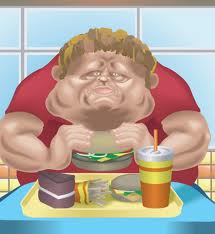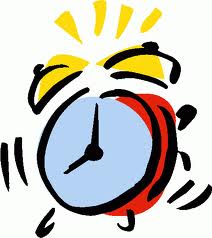Why do we feel a sense of loss? Loss per se is not enough to derail us from our mainstream professional and personal life is it? We lose millions of cells everyday through wear and tear. We see a lot of hair in our comb in the bath. Wrinkles cutting in on our face, our fingernails lose out to clippers, paperwork gone missing, some random valuables etc. But these don’t make us sulk over them in most cases; do they? Then what is it that makes one kind of loss more significant than the other? What is it that pierces through our emotions; leaving us stranded on an uninhabited graveyard; looking for pieces of our own existence? Is there a definite way to answer this? Or will this issue remain a mystery forever?[/b]
[/b]
Thus nature spake- the work was done-[/b]
How soon my Lucy’s race was run![/b]
She died, and left to me[/b]
This health, this calm and quiet scene;[/b]
The memory of what has been,[/b]
And never more will be.[/b]
[/b]
# William Wordsworth [/b]
[/b]
This is the last stanza of the poem “Education of Nature” by a very renowned poet –William wordsworth. In this he expresses grief initially at the untimely loss vis-à-vis tries to gain composure; exalting from the sense of pathos (emotional turmoil) to look at the subject of loss objectively. [/b]
[/b]
He presents us with a solution; a profound one in fact. We all start looking at the loss – as something inherent in us after sometime. Instead we should stand afar from it and treat it like an object. The temptation for an object can be turned down; but the pathos is perennially alluring.[/b]
[/b]
Attachment to someone or something is what magnifies the extent of your loss-not the loss itself. Loss does not have the characteristic of self-propagation; attachment does ! It starts breeding inside us and eventually makes us dependent on that someone or something. We start losing our self esteem – in absence of that attachment. [/b]
 [/b]
[/b]
Have you seen the advertisement s of Fevicol – “Fevicol ka Jodd Hai Tootega Nahi “. It is similar to that only much more adverse. Your furniture may be replaced by new ones ; but you have got only one mind and one heart to treasure for all your life. Or do you have another one secretly stashed away in your bank locker?[/b]
[/b]
It is indeed easier said than done. Even the most professional among the people falter and start having panic attacks in the state of loss. It is common in the medical profession that surgeons can’t operate on their near and dear ones; unless it is the case of utmost emergency. The reason being; if any small memory of the patient and the surgeon floods the surgeon’s mind; a moment’s hesitation can be catastrophic.[/b]
 [/b]
[/b]
What most people do in effect after sometime is ignoring the topic of loss altogether. They close the doors and put a big lock on it; and throw the key away just to be sure. Then they go into a state of self-abuse. This may be mild in some cases and extreme in the other. We all know the implications and means of the extreme one (it is not apt to talk it out here) ; but the mild one is somewhat different. We go into a state of unconsciousness , like when we consume copious amount of food while watching some drama on TV ; losing track of the quantity and quality. Obesity follows. In general sense this obesity may not be physical; it may manifest itself psychologically too. We stop caring about many core issues; negligence at studies or work, ignoring people who actually care for us, not returning calls and mails from family and friends among many other gimmicks. [/b]
[/b]
It is not a plea for attention as many may be mistaken. It is in fact a period of seeking detachment. This period may vary from one individual to another. Some may not need it altogether. Some may never come out without professional help.[/b]
 [/b]
[/b]
So is there is solution? Psychologists say there is. They suggest that we tend to distract ourselves with whatever used to make us smile and move on or even triggered a outburst of our motions. The children playing gleefully, pets, the sound of horns, it may even be an Alarm clock for all we know. We will then; wake up and get on with our lives, the first few steps will be hard – but the road ahead is going to be smooth- at least that’s what they suggest. [/b]
[/b]
[/b]
[/b]
[/b]
[/b]
[/b]
[/b]
[/b]
[/b]
[/b]
[/b]
[/b]
[/b]
[/b]
[/b]
[/b]
[/b]
[/b]
[/b]
[/b]
[/b]
[/b]
Thus nature spake- the work was done-[/b]
How soon my Lucy’s race was run![/b]
She died, and left to me[/b]
This health, this calm and quiet scene;[/b]
The memory of what has been,[/b]
And never more will be.[/b]
[/b]
# William Wordsworth [/b]
[/b]
This is the last stanza of the poem “Education of Nature” by a very renowned poet –William wordsworth. In this he expresses grief initially at the untimely loss vis-à-vis tries to gain composure; exalting from the sense of pathos (emotional turmoil) to look at the subject of loss objectively. [/b]
[/b]
He presents us with a solution; a profound one in fact. We all start looking at the loss – as something inherent in us after sometime. Instead we should stand afar from it and treat it like an object. The temptation for an object can be turned down; but the pathos is perennially alluring.[/b]
[/b]
Attachment to someone or something is what magnifies the extent of your loss-not the loss itself. Loss does not have the characteristic of self-propagation; attachment does ! It starts breeding inside us and eventually makes us dependent on that someone or something. We start losing our self esteem – in absence of that attachment. [/b]

Have you seen the advertisement s of Fevicol – “Fevicol ka Jodd Hai Tootega Nahi “. It is similar to that only much more adverse. Your furniture may be replaced by new ones ; but you have got only one mind and one heart to treasure for all your life. Or do you have another one secretly stashed away in your bank locker?[/b]
[/b]
It is indeed easier said than done. Even the most professional among the people falter and start having panic attacks in the state of loss. It is common in the medical profession that surgeons can’t operate on their near and dear ones; unless it is the case of utmost emergency. The reason being; if any small memory of the patient and the surgeon floods the surgeon’s mind; a moment’s hesitation can be catastrophic.[/b]

What most people do in effect after sometime is ignoring the topic of loss altogether. They close the doors and put a big lock on it; and throw the key away just to be sure. Then they go into a state of self-abuse. This may be mild in some cases and extreme in the other. We all know the implications and means of the extreme one (it is not apt to talk it out here) ; but the mild one is somewhat different. We go into a state of unconsciousness , like when we consume copious amount of food while watching some drama on TV ; losing track of the quantity and quality. Obesity follows. In general sense this obesity may not be physical; it may manifest itself psychologically too. We stop caring about many core issues; negligence at studies or work, ignoring people who actually care for us, not returning calls and mails from family and friends among many other gimmicks. [/b]
[/b]
It is not a plea for attention as many may be mistaken. It is in fact a period of seeking detachment. This period may vary from one individual to another. Some may not need it altogether. Some may never come out without professional help.[/b]

So is there is solution? Psychologists say there is. They suggest that we tend to distract ourselves with whatever used to make us smile and move on or even triggered a outburst of our motions. The children playing gleefully, pets, the sound of horns, it may even be an Alarm clock for all we know. We will then; wake up and get on with our lives, the first few steps will be hard – but the road ahead is going to be smooth- at least that’s what they suggest. [/b]
[/b]
[/b]
[/b]
[/b]
[/b]
[/b]
[/b]
[/b]
[/b]
[/b]
[/b]
[/b]
[/b]
[/b]
[/b]
[/b]
[/b]
[/b]
[/b]
[/b]
[/b]
